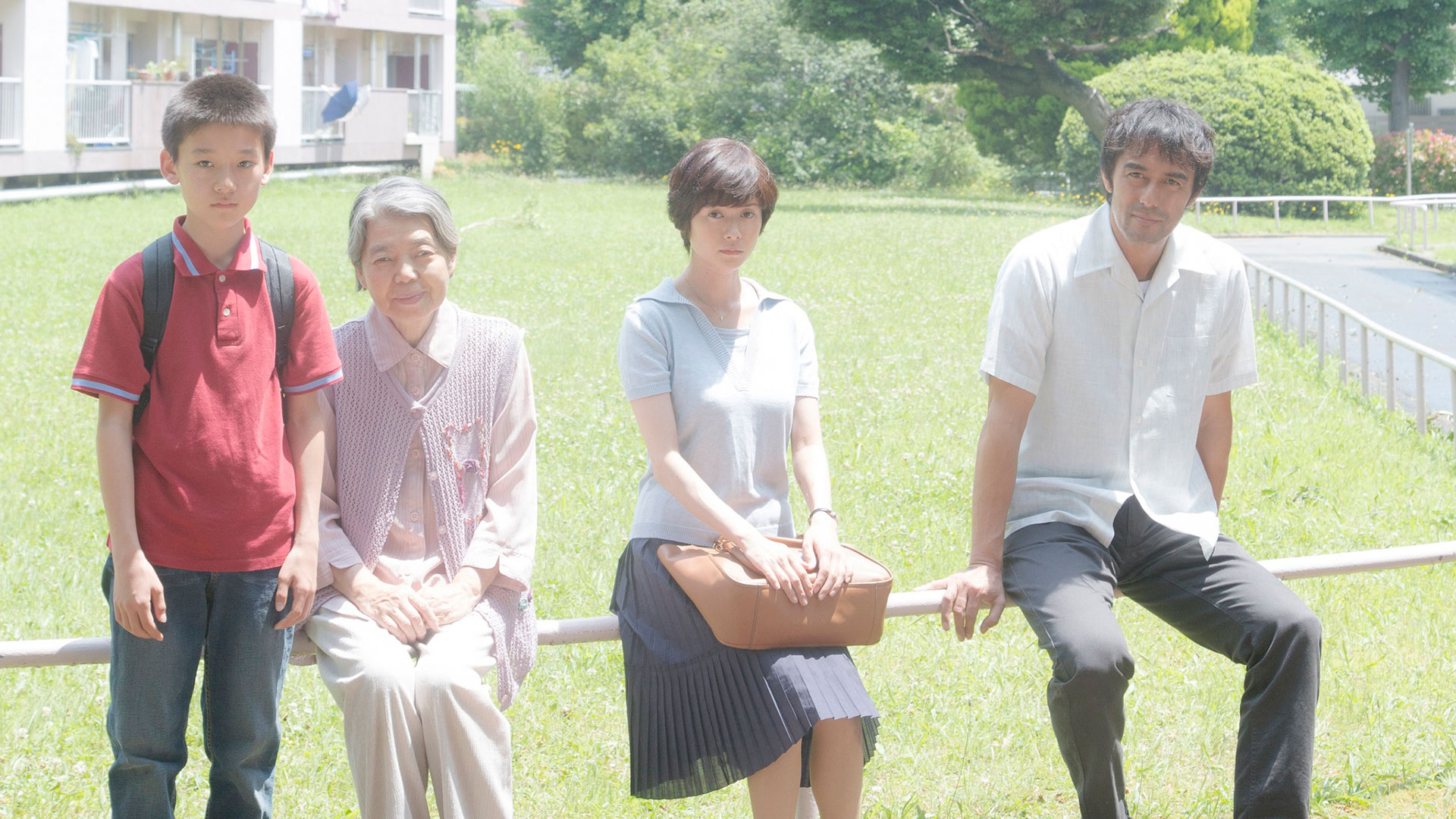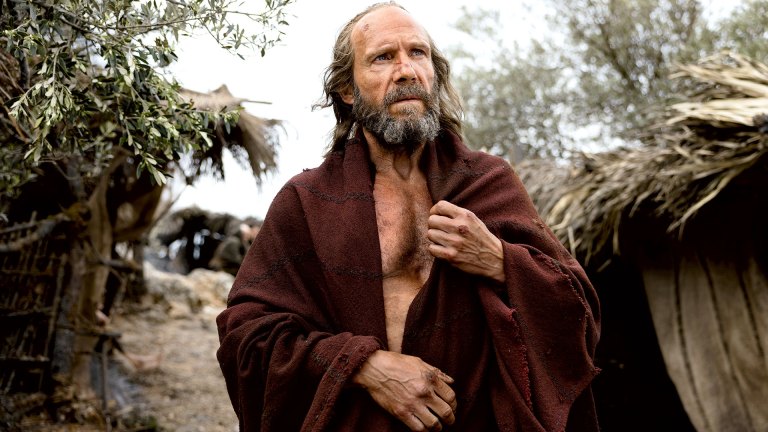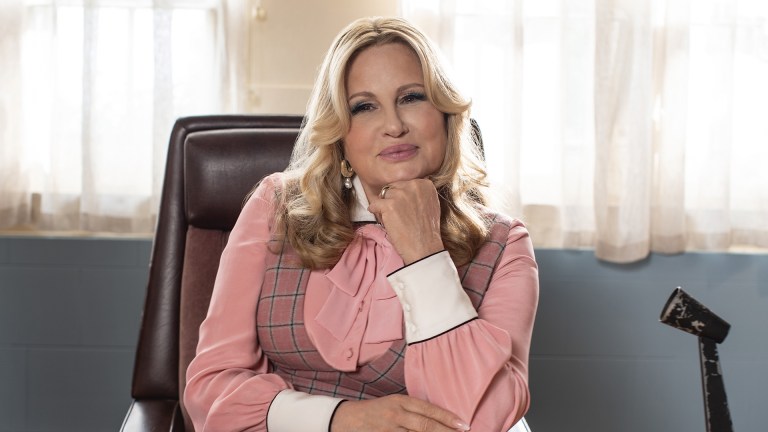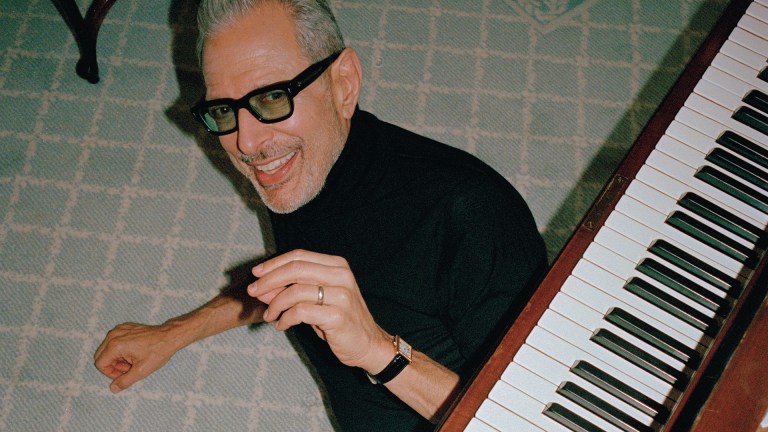After the Storm is the latest film from Japanese director Hirokazu Koreeda, a director who isn’t as well known to UK audiences as he should be. His new film is a family drama: the pace is slow, attuned to the unhurried domestic rituals of an ageing matriarch who is one of the main characters, and its observations on life rueful and delicate. It’s the kind of film that risks being labelled old-fashioned, and it’s true that After the Storm invites our involvement through an accumulation of gentle, small-scale moments, passing character details and a quiet command of atmosphere. Yes, it requires some patience but compared to the attention-demanding brashness of so many other films I found something rather radical about its unfurling subtleties and contemplative mood.
After the Storm is set in suburban Tokyo, and much of the action converges on the small flat owned by Yoshiko (Kirin Kiki), an elderly widow and mother to a grown-up son, Ryôta (Hiroshi Abe). Their relationship is what the film worries away at, with absorbing insight and unsparing honesty. Now in his 40s, Ryôta wrote an award-winning novel more than 10 years ago. But that success is a distant memory, one of the figurative storms, perhaps, implied by the film’s title: this is a movie much more interested in the consequences of tempestuous events than their direct depiction. Right now Ryôta’s a mess. He works at a detective agency, devising tawdry ways with his partner to fleece clients of their money; he has a gambling addiction; he is struggling to pay the child support for his young son Shingo; and he makes regular trips to his mum’s house to look for antiques he might pawn (a scheme of which the owlishly wise Yoshiko is all too aware).
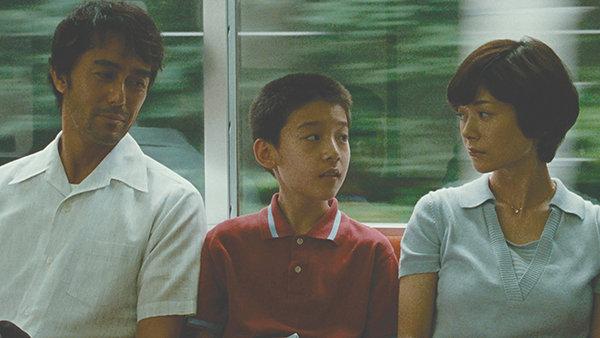
In short, not an especially likeable character: and yet in a performance of rangy, ramshackle charisma Abe is able to draw out our sympathy. Even in his most pathetic moments Ryôta demonstrates roguish ingenuity – such as a lovely scene when he scuffs an expensive pair of trainers he has promised to his son in a sports store to secure a discount. Only his ex-wife Kyôko is immune to his charm. After the Storm is a film built from sharply observed throwaway moments and the best of them is the lacerating glower Kyôko gives him when he tricks her into spending the night with him and Shingo at Yoshiko’s flat. This extended sojourn in a cramped, untidy apartment – to which Kyôko reluctantly agrees because a typhoon has made travel plans difficult – is the film’s deeply moving set-piece, a night-long conversation piece between mother, son and ex-daughter-in-law. What follows is a mini-masterpiece of writing and performance, in which the disappointments and regrets of the past are ruminated on, joked about and angrily revisited by the flat’s inhabitants as the weather rages outside.
She reminded me of the elderly women who populate Alan Bennett’s plays – spiky, sardonic, soppily sentimental but wily and cunning too.
After the Storm catches you unawares: seemingly so slight, a chamber piece in a minor key, it is in fact as honest and complex a depiction of family life – and the fraught, tender, melancholy relationship between generations – that I’ve seen in a long time.
Special mention should be made of the vivid impression left by Yoshiko (wonderfully played by Kiki). She reminded me of the elderly women who populate Alan Bennett’s plays – spiky, sardonic, soppily sentimental but wily and cunning too. When encouraged to cultivate more of a social life now that her husband is dead, she says: “New friends at my age only mean more funerals.” It’s a line one can imagine the late Thora Hird delivering with mordant relish.
